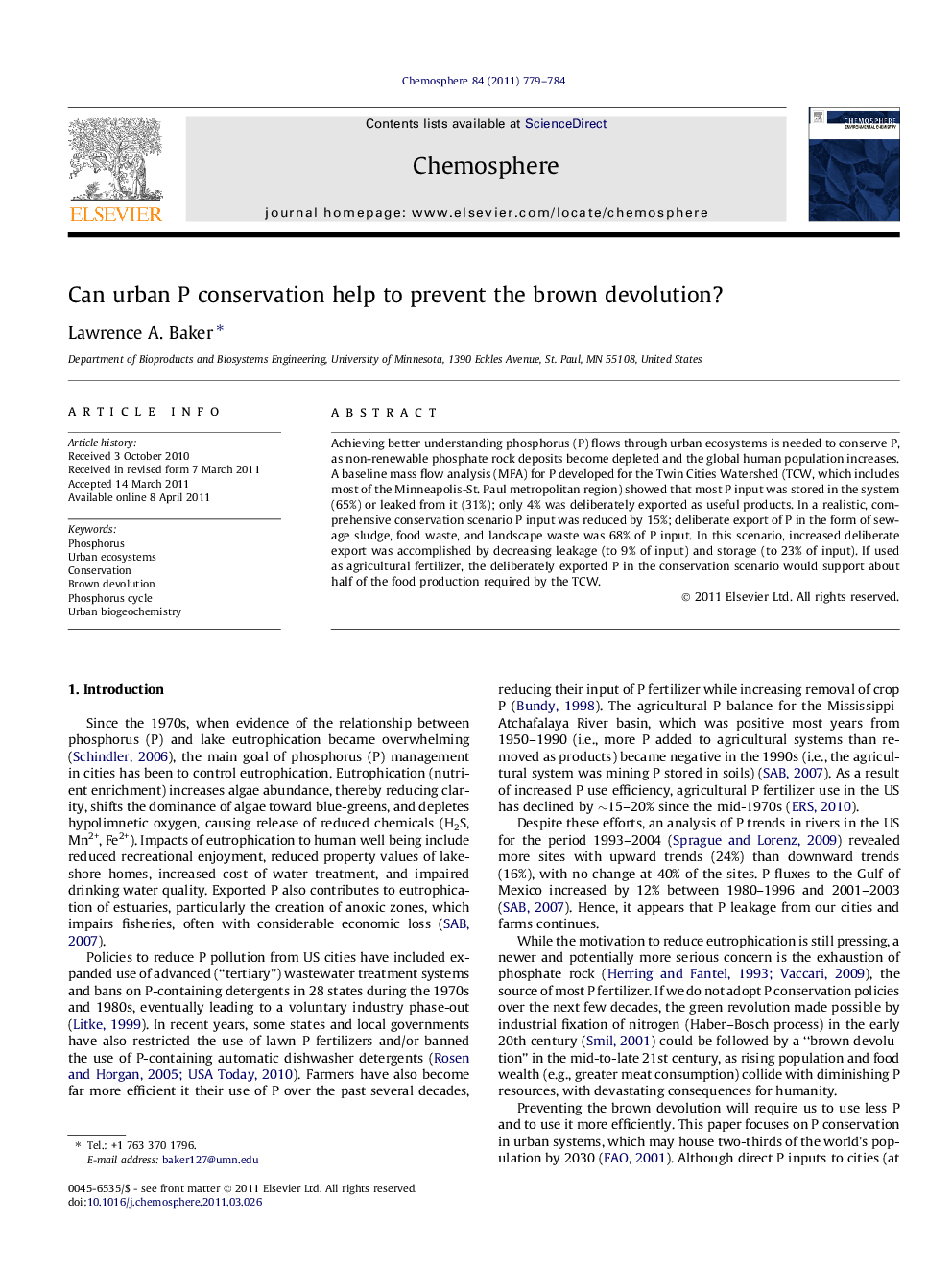| Article ID | Journal | Published Year | Pages | File Type |
|---|---|---|---|---|
| 4410561 | Chemosphere | 2011 | 6 Pages |
Achieving better understanding phosphorus (P) flows through urban ecosystems is needed to conserve P, as non-renewable phosphate rock deposits become depleted and the global human population increases. A baseline mass flow analysis (MFA) for P developed for the Twin Cities Watershed (TCW, which includes most of the Minneapolis-St. Paul metropolitan region) showed that most P input was stored in the system (65%) or leaked from it (31%); only 4% was deliberately exported as useful products. In a realistic, comprehensive conservation scenario P input was reduced by 15%; deliberate export of P in the form of sewage sludge, food waste, and landscape waste was 68% of P input. In this scenario, increased deliberate export was accomplished by decreasing leakage (to 9% of input) and storage (to 23% of input). If used as agricultural fertilizer, the deliberately exported P in the conservation scenario would support about half of the food production required by the TCW.
► Globally, phosphate rock is being exhausted. This will require us to utilize phosphorus (P) more efficiently. ► A mass flow analysis for the Twin Cities showed that 96% of P entering the city in 2000 was stored or leaked. ► A comprehensive, but realistic conservation scenario showed that P recycling could provide about half of the P needed to provide food for the city. ► More efficient recycling of P would also reduce eutrophication.
